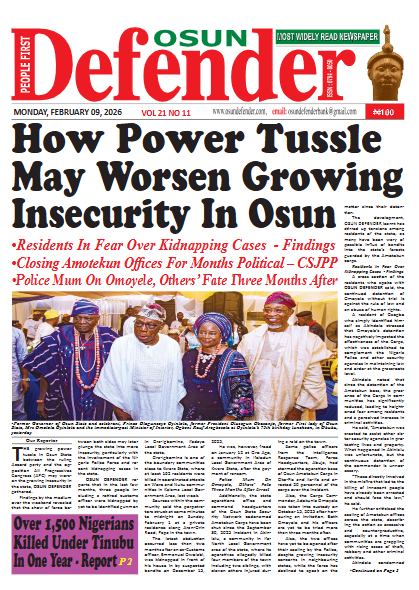Deciding a minimum wage should not be an antagonistic long drawn out saga. Particularly for a progressive government, it should be the trajectory of overall economic policy. Unfortunately here it is beginning to look like a pre – election splurge, in which case it is prudent to be weary of politicians bearing gifts. A key issue is frankly that of definition. On this issue, both the federal government and the trade unions are clearly frozen in the past.
This is because the world has sensibly moved on from the concept of “minimum” to living wages. In a globalised world with unstable commodities markets and turbulent currencies a one – off incremental rise is bound to be problematic and fraught with the danger of becoming self – defeating. The recurrent issue in Nigeria of course is that labour relations is on the exclusive legislative list. This is contradictory, for even in unitary states there are regional variations. In the United Kingdom for example before and after the devolution of powers to Scotland and Wales there are “weighting” allowances to ameliorate the high costs of living in certain metropolitan areas, notably in London.
Of course in a federal state even where there is a national minimum threshold, the prerogative of the states as federal units to determine their minimum wage is given. To do otherwise is to deny them the much-needed flexibility to ensure their fiscal balance. The problem is accentuated in Nigeria because the country is in reality, a quasi – federal set up. The constituent states have only limited control if any over their own resources. To deny the states flexibility, is just asking for industrial strife. All parties involved must accept this fact.
The road not taking by the negotiating parties has put the economy in a conundrum. The issue should have been based on a living wage. The admirably strong economy of Germany has for decades built a world class system of social and economic relationships on this premise. It has been widely admired and emulated. German type “fixed contracts” and graduated incremental increases have ensured a solid fiscal balance; a skills based fiercely competitive economy and rancour free industrial relations. We should have followed this route which others have sensibly done. For example, if California was an independent country, it will be the sixth largest economy in the world. Nevertheless, six weeks ago, it sensibly negotiated a graduated minimum wage of 3% annual increase every year for seven years, this ensures fiscal stability and makes the gains slow, steady and lasting. This tried, tested and sensible route is the way to go.
To be meaningful, living wages have to be interwoven around increased access to health care, the provision of social housing on a rent to buy basis, free and compulsory education up to the age of sixteen initially and so forth. From this perspective government social intervention programs are also a part of the living wage. This is the framework that was used by the government of Ignacio lula da Silva to pull forty million people out of poverty in Brazil. It can be done. In our State of Osun for instance it will be ludicrous to talk about a minimum wage without factoring in the state’s path breaking, widely admired social intervention programs such as the home grown school feeding program.
In the case of Nigeria ‘s defective and malfunctioning federal set up, there must be Real devolution of fiscal powers and resource control to the federating units. In this way, we can achieve sustainable development and solid ever increasing living standards. Frankly, it is the only feasible way to go. Any wage increase which denies the states flexibility is self defeating, constitutes a danger to the country’s macro – economic stability and constitutes a present danger to a fragile democracy. We have to reconsider the ill advised road we are taking. The evidence from our contemporary economic history since independence provides enough evidence that we are entering into another cul-de-sac.










